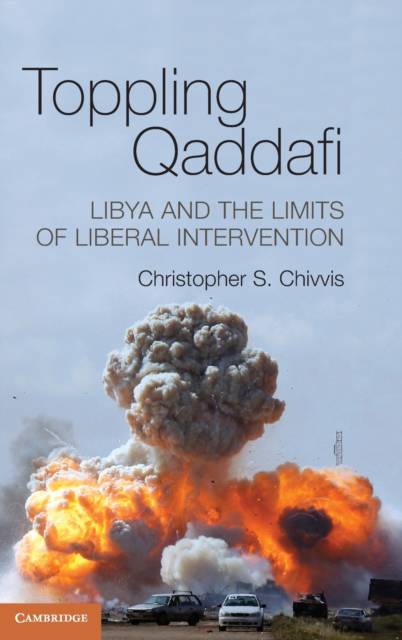
- Afhalen na 1 uur in een winkel met voorraad
- Gratis thuislevering in België vanaf € 30
- Ruim aanbod met 7 miljoen producten
- Afhalen na 1 uur in een winkel met voorraad
- Gratis thuislevering in België vanaf € 30
- Ruim aanbod met 7 miljoen producten
Zoeken
Toppling Qaddafi
Libya and the Limits of Liberal Intervention
Christopher S Chivvis
Hardcover | Engels
€ 180,45
+ 360 punten
Uitvoering
Omschrijving
Toppling Qaddafi is a carefully researched, highly readable look at the role of the United States and NATO in Libya's war of liberation and its lessons for future military interventions. Based on extensive interviews within the U.S. government, this book recounts the story of how the United States and its European allies went to war against Muammar Qaddafi in 2011, why they won the war, and what the implications for NATO, Europe, and Libya will be. This was a war that few saw coming, and many worried would go badly awry, but in the end the Qaddafi regime fell and a new era in Libya's history dawned. Whether this is the kind of intervention that can be repeated, however, remains an open question - as does Libya's future and that of its neighbors.
Specificaties
Betrokkenen
- Auteur(s):
- Uitgeverij:
Inhoud
- Aantal bladzijden:
- 264
- Taal:
- Engels
Eigenschappen
- Productcode (EAN):
- 9781107041479
- Verschijningsdatum:
- 16/12/2013
- Uitvoering:
- Hardcover
- Formaat:
- Genaaid
- Afmetingen:
- 152 mm x 231 mm
- Gewicht:
- 544 g

Alleen bij Standaard Boekhandel
+ 360 punten op je klantenkaart van Standaard Boekhandel
Beoordelingen
We publiceren alleen reviews die voldoen aan de voorwaarden voor reviews. Bekijk onze voorwaarden voor reviews.











